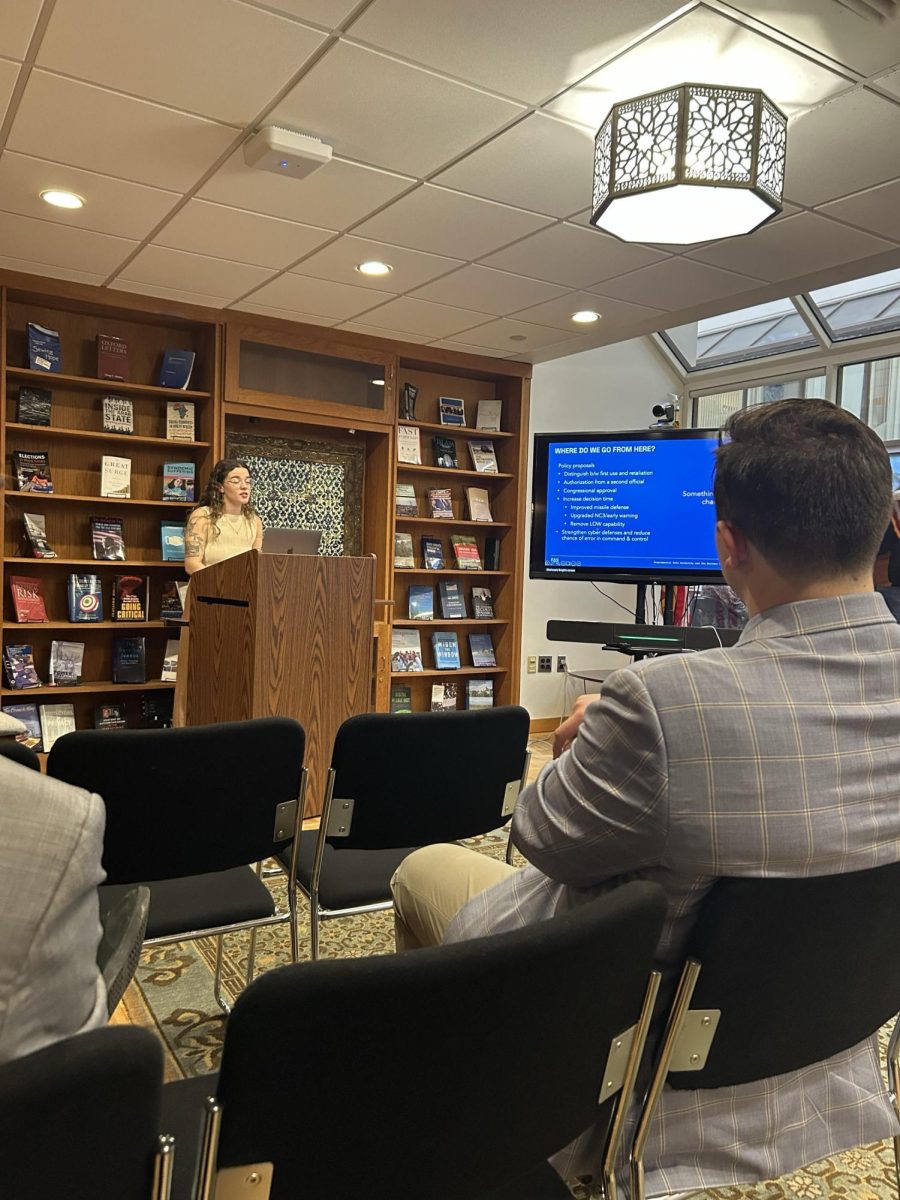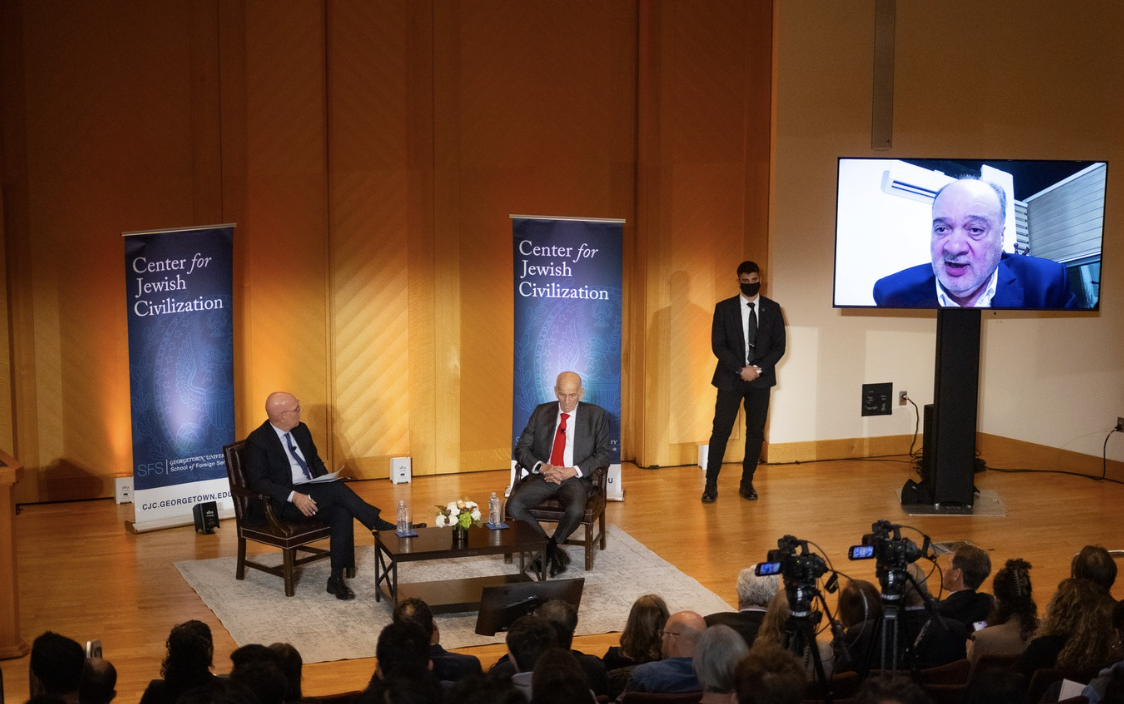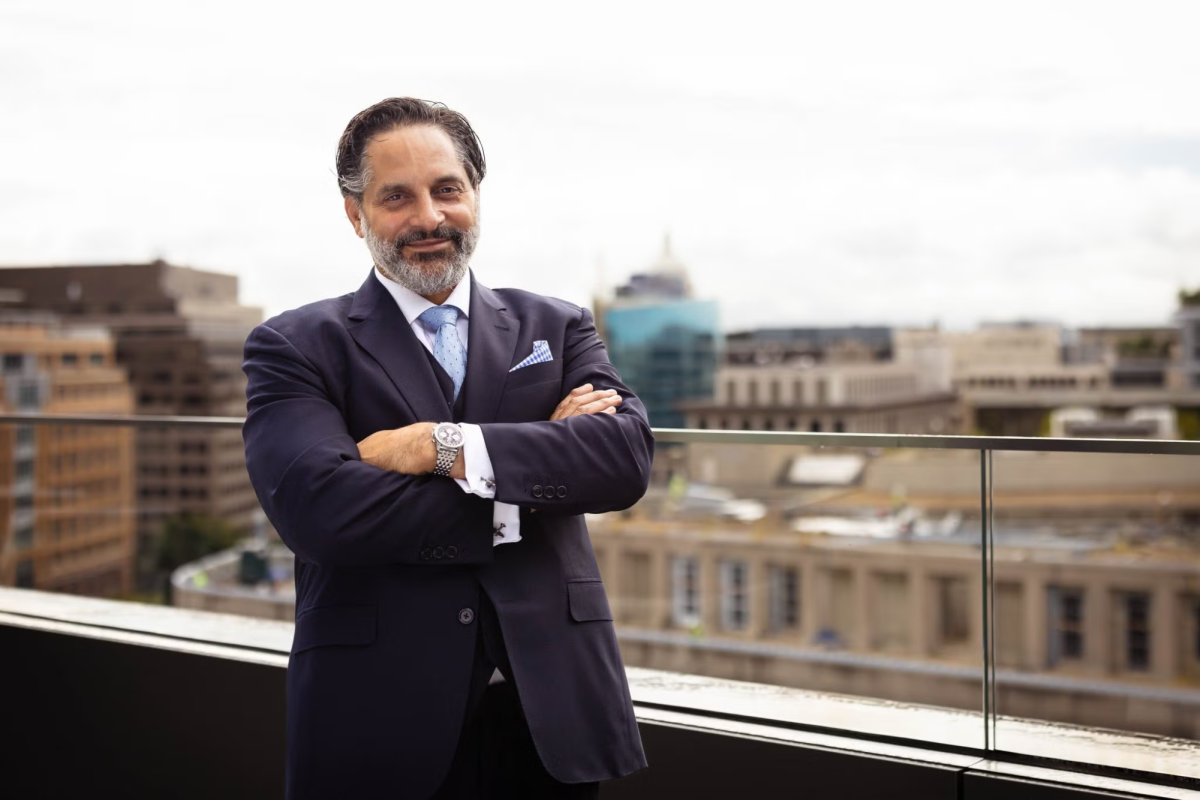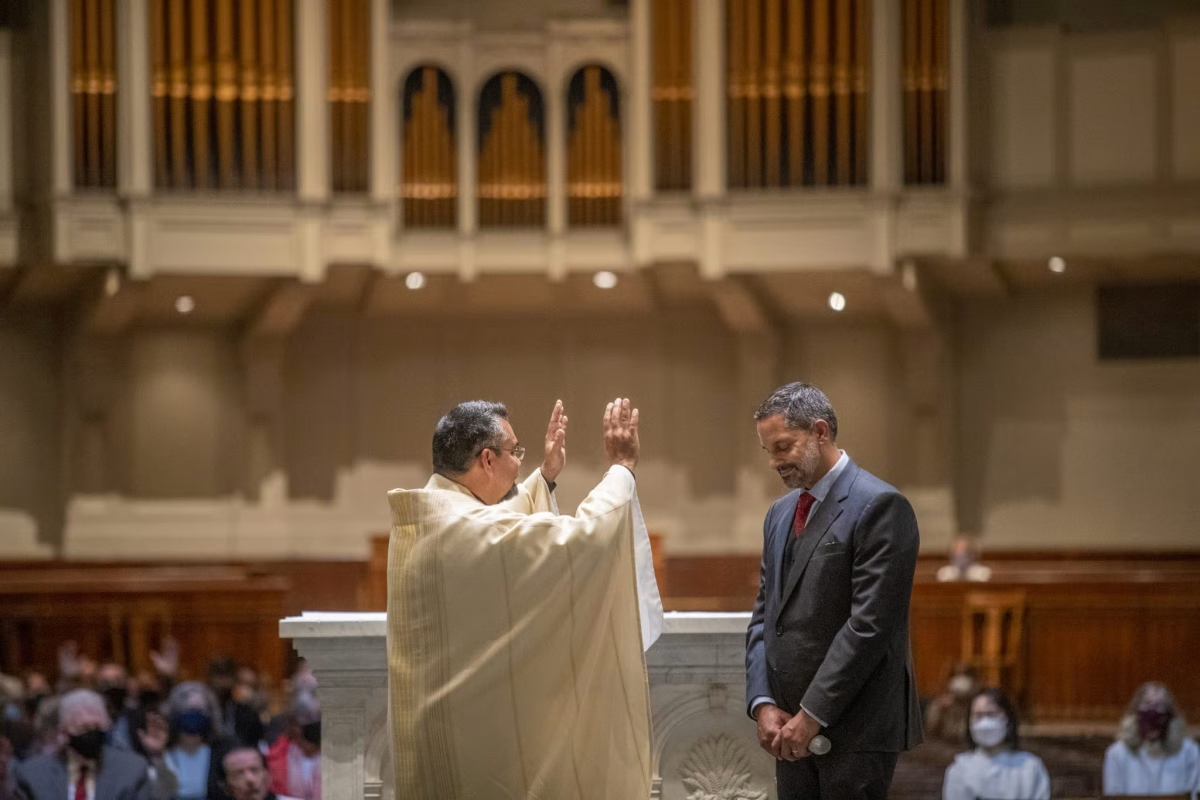A researcher at the Federation of American Scientists (FAS) warned against sole presidential authority and troubles surrounding nuclear war at a Walsh School of Foreign Service (SFS) event Jan. 29.
Mackenzie Knight, the researcher, explained how sole presidential authority, especially under the new Trump administration, could be used to kickstart nuclear war and launch intercontinental ballistic missiles (ICBMs), nuclear weapons with the capability to wipe out cities. At the event, which All Things Nukes, a graduate student organization that examines nuclear policy in the field of international relations, co-hosted, Knight highlighted the de facto power of the president to bypass Congress to start a nuclear war.
Knight said U.S. presidents have unique control over nuclear weapons.
“Presidential sole authority is the decision about when weapons get used, if they get used, where they get used, which ones get used,” Knight said at the event. “That is the president’s decision, and the president is the only person in the United States who has the legal authority to order the use of nuclear weapons.”
“If one looks closely at press images of U.S. presidents out and about on their way to or from a meeting, boarding Air Force One or maybe out for a run, they will notice a constant presence trailing behind the president, and that is a military official carrying a large black 40-pound leather briefcase,” Knight added.
Known as the “nuclear football,” the briefcase contains materials detailing plans for nuclear war and resources to connect the president to the Pentagon.
Knight said the sole authority doctrine is particularly dangerous due to the permanence of nuclear weapons.
“There’s no way to recall ICBMs once they’ve been launched,” Knight said. “There’s no way to detonate them midway while they’re in their ballistic phase.”
Knight added that the technology that monitors imminent attacks is fallible.
“It relies on a system of early warning devices and procedures that are really vulnerable to false alarms, human error, misinterpretation, cyberattack nowadays,” Knight said.
Knight referenced a false alarm of nuclear monitors in 2018 in which Hawaii’s technology detected a false sizable ballistic attack headed toward its islands. The false alarm resulted in mass panic.
Knight said the prominence of a “use it or lose it” philosophy, either using the United States’ nuclear weapons or risking their destruction, can pose threats.
“The idea is if there’s an imminent attack coming to the United States, we should launch our ICBMs before that attack hits,” Knight said. “That combination makes it really, really fast. It really limits the window of timing that the president has to make a decision, which puts a lot of pressure, a huge time constraint, and really heightens the chance of a president making a mistake, making a decision, without having all of the information yet and making not the best, most logical decision.”
Knight added that she is concerned that the United States does not have a policy limiting presidents from ordering unprovoked strikes or requiring advisor approval.
“They can decide legally, and logistically, to order the launch of weapons whenever they want,” Knight said. “The U.S. does not have a no-first-use policy like China does.”
Knight added that this policy is increasingly relevant amid President Trump’s return to office.
“During Donald Trump’s first term, Mark Milley, chairman of the joint chiefs of staff, became so concerned about Trump’s behavior and the nuclear threats that he was making in a really blase manner,” explained Knight.
Knight said some ideas for legislation have been pitched; however, none have gained much traction.
“Nuclear weapons policies tend to be pretty bipartisan in the fact that Democrats and Republicans alike tend to be pro-nuclear weapons and pro-the rhetoric policies that we have in place,” Knight said. “It’s actually just been a few Senators or representatives here and there who are the ones carrying the torch on this policy.”
“The one thing that everybody can agree on is something needs to change,” Knight added.








